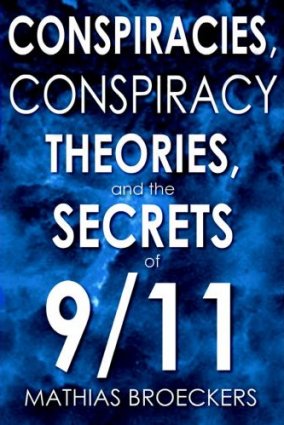- When Pearl Harbor was attacked 'out of the blue' on December 7, 1941, the Americans were enraged at the chicanery of the Japanese. Today, diverse historians maintain that President Roosevelt knew about the attack in advance and actually provoked it. Roosevelt wanted to enter the Second World War, but until Pearl Harbor, 88% of the American population were against it.
- When aircraft attacked the World Trade Center and the Pentagon, out of the blue, on September 11, 2001, America and the rest of the world were appalled at the sheer malice of the assaults. The identity of the perpetrators and the enemy was announced immediately: Osama Bin Laden and his Islamic terrorist group, Al Queda. And George W. Bush quickly declared war on 'international terrorism' – a war for which there had previously been little support. In the meantime evidence has mounted to support the theory that the US Government had been informed about the attack in advance.
- This book declares that September 11 is not only the date of a horrifying mass murder, but also the point at which bizarre absurdities, fantastic contradictions, suppressed background information and strategic undercover operations all came together. Is it really true that since September 11 nothing is the way it used to be? For the fact is: before that, a great many things were different to what they seemed.
- Broeckers is a stickler for accuracy. The official version leaves a great many questions unanswered: Why haven't the contents of the flight recorders and tapes from air traffic control been made public? Why didn't the names of the 19 alleged hijackers appear on the passenger lists? Why are there no photos or video footage of the crash site at the Pentagon, where parts of aircraft wreckage were clearly visible? Why was the wreckage of the aircraft that crashed in Pennsylvania strewn over such a wide area? Official denials notwithstanding, was it shot down? Why did the USA's top Bin Laden investigator, John O'Neill, resign in July, 2001, eight weeks before the attacks? What kind of direct dealings did the Bush and Bin Laden families have with each other? What sort of interests does Vice President Cheney's company, Halliburton, have in the pipeline projects in Afghanistan? Why were there secret talks with the Taliban government over these pipelines until July 2001? Why did certain people at the top stop FBI investigations into suspicious students at flight schools? Why did Bush and Cheney put pressure on opposition leader Tom Daschle to encourage Congress to stop a more thorough investigation of September 11?
- The German newsmagazine Der Spiegel (42/2002) called Broeckers’s book "the bestseller of wariness," and the conservative Frankfurter Allgemeine Zeitung asked with some concern: "Does such highly explosive material belong in the hands of civilians?" Broeckers is an investigative specialist in conspiracies. In this book he explains that the generally accepted version of the September 11 attacks is a conspiracy theory deliberately designed to lead world opinion down the wrong path. "Although it was the biggest police investigation of all time," writes Broeckers, "one year after the attacks the amount of evidence gathered against those who allegedly masterminded them, Osama Bin Laden and his terrorist group Al Queda, comes to no more than it did only a few hours afterwards: virtually nothing."
- Broeckers asks who stood to gain from these terrorist attacks and brings other notorious suspects into play. He is not out to inflict conspiracy theories on the world, he just wants people to take a more scientific, skeptical attitude to conspiracy, emphasizing how much more productive this would be. The reason: "Without an appropriate approach to conspiracy theory, our extremely complex and treacherous world would be impossible to understand."
- By Mathias Broecker
- Paperback, 288 pages
